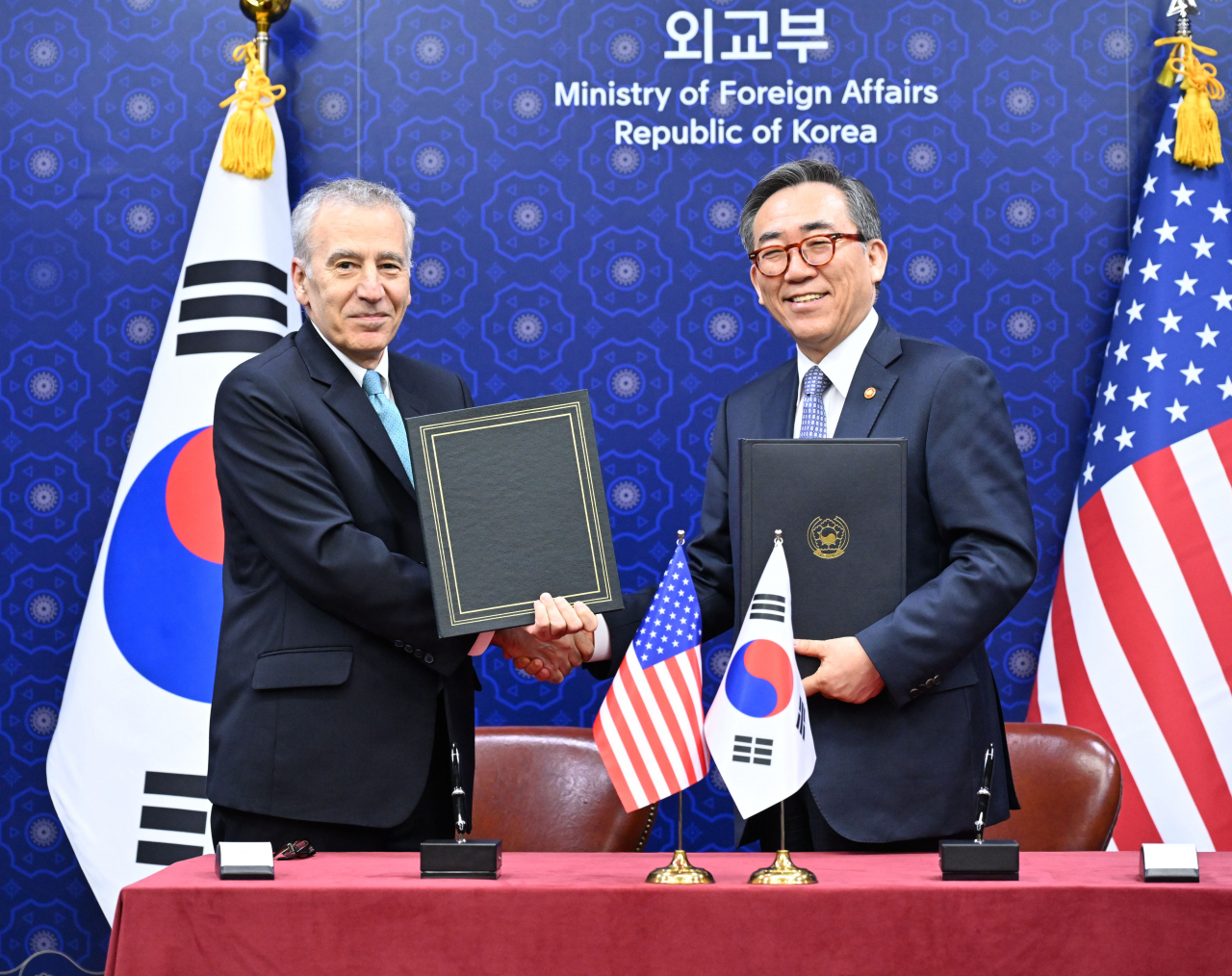
 |
| Foreign Minister Cho Tae-yul (right) and US Ambassador to South Korea Philip Goldberg shake hands after signing a defense cost-sharing agreement in Seoul on Monday. (Yonhap) |
South Korea and the United States formally signed a defense cost-sharing agreement Monday, as Seoul seeks to speed up its domestic ratification procedure to ensure the stable stationing of American troops here ahead of the US elections.
The signing came a month after the allies reached a new five-year deal on determining Seoul's share of its cost for the upkeep of the 28,500-strong US Forces Korea.
Foreign Minister Cho Tae-yul and US Ambassador to South Korea Philip Goldberg signed the deal, known as the Special Measures Agreement, at the foreign ministry in Seoul, officials said.
Under the 12th SMA, which will last until 2030, South Korea will pay 1.52 trillion won ($1.19 billion) in 2026, up 8.3 percent from 1.4 trillion won in 2025.
The deal links an annual increase in Seoul's SMA contributions to the consumer price index, a shift from the existing deal tying the increase to an annual rise in South Korea's defense budget.
"The agreement signed today will be submitted to the National Assembly at the earliest date for ratification," the foreign ministry said in a release.
"The agreement is expected to greatly contribute to providing conditions for the stable stationing of the USFK and strengthening the South Korea-US joint defense posture," it said.
The signing also came just days before the US holds its presidential election Tuesday. Seoul and Washington launched the negotiations to renew the SMA in April at an earlier time than expected.
The move has been seen as Seoul intending to strike a new deal before a potential return of former US President Donald Trump to the White House. Trump had demanded a hefty rise in Seoul's share to as much as $50 billion during his term, calling the ally a free-rider on US military power.
During this year's campaign, Trump described South Korea as a "very wealthy" nation and a "money machine," suggesting that the US could pull out its troops from South Korea if Seoul does not make more financial contributions to support them.
Since 1991, Seoul has partially shouldered costs under the SMA for Korean USFK workers; the construction of military facilities; and other logistical support.









